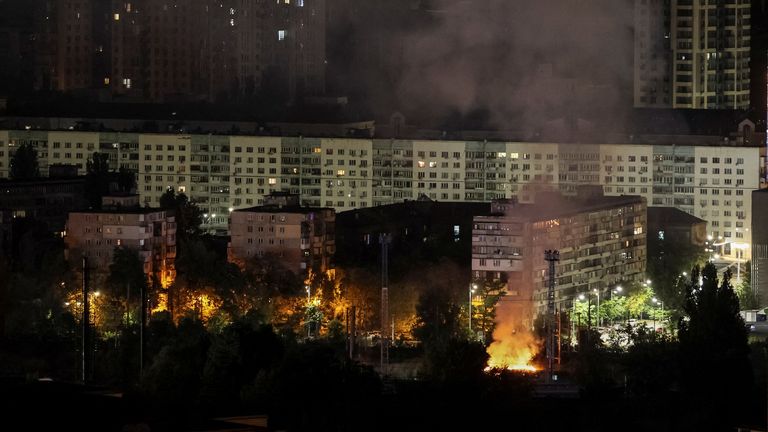
IndependentReport – On February 18, 2025, Russia launches a large-scale drone attack on Ukraine while peace negotiations were being held in Riyadh, Saudi Arabia. This aggressive move has raised concerns among the international community about Moscow’s commitment to the ongoing diplomatic efforts aimed at resolving the prolonged conflict.
According to reports, Russia fired approximately 100 drones targeting various regions in Ukraine. The attack coincided with a high-level meeting between Russian and American delegates in Riyadh, which was intended to discuss a ceasefire and other measures for establishing peace.
The timing of the drone strikes has led many to question Russia’s sincerity in engaging in negotiations. Ukrainian authorities condemned the assault, calling it an act of bad faith and an attempt to undermine the peace process. Local officials reported significant damage in multiple cities, including Kyiv, Odesa, and Lviv, with civilian casualties still being assessed.
The international community reacted strongly to the drone strikes, with multiple world leaders condemning the attack. The United Nations called for an emergency meeting to address the issue, and NATO officials stated that Russia’s actions contradicted its stated commitment to diplomatic discussions.
Ukrainian President Volodymyr Zelensky criticized Russia’s actions, emphasizing that Ukraine would not be intimidated by military pressure. “This attack proves that Russia does not genuinely seek peace. We remain steadfast in defending our sovereignty and will continue to resist aggression,” Zelensky stated in a press briefing.
In response, U.S. officials labeled the attack as a deliberate escalation of hostilities. “This is a blatant violation of the ongoing peace discussions, and we will work with our allies to ensure accountability,” a White House spokesperson remarked. European Union leaders echoed similar sentiments, with some calling for stricter sanctions against Russia.
“Also Read: Miracles of Jesus: 5 Bible Stories Full of Meaning and Divine Power”
Despite the hostilities, negotiations between Russian and American officials in Riyadh continued. The discussions were focused on setting conditions for a potential ceasefire, prisoner exchanges, and economic aid for war-affected areas.
However, the absence of Ukrainian representatives in these discussions raised concerns from Kyiv. Ukrainian officials insisted that no agreement should be made without direct involvement from their government. “Ukraine must be at the center of any peace process. We will not accept decisions made without our participation,” a senior Ukrainian diplomat stated.
Meanwhile, Russian officials defended their military actions, claiming they were targeting strategic threats and not undermining diplomatic talks. Kremlin spokesperson Dmitry Peskov justified the strikes by stating, “Our military operations continue as necessary to protect our national security interests. The negotiations will proceed independently of these actions.”
As tensions escalate, Turkish President Recep Tayyip Erdogan has offered to host the next round of peace talks between Russia and Ukraine. Turkey has previously played a crucial role in mediating conflicts and has strong ties with both nations. Erdogan emphasized the need for direct engagement between Moscow and Kyiv, stating that “a true peace agreement can only be achieved through meaningful dialogue between both parties.”
The Turkish proposal has gained support from several nations. Including Germany and France, who have expressed interest in assisting the mediation efforts. However, skepticism remains regarding Russia’s willingness to genuinely participate in negotiations while continuing military offensives.
Despite diplomatic efforts, the road to peace remains difficult. The continued military actions by Russia indicate that a ceasefire is far from guaranteed. The attack on Ukraine during peace negotiations highlights the complexity of the situation and the lack of trust between the parties involved.
Ukraine has repeatedly called for stronger international support, including advanced military aid and economic sanctions against Russia launches drone. NATO is currently reviewing its response strategy and considering additional measures to deter further aggression.